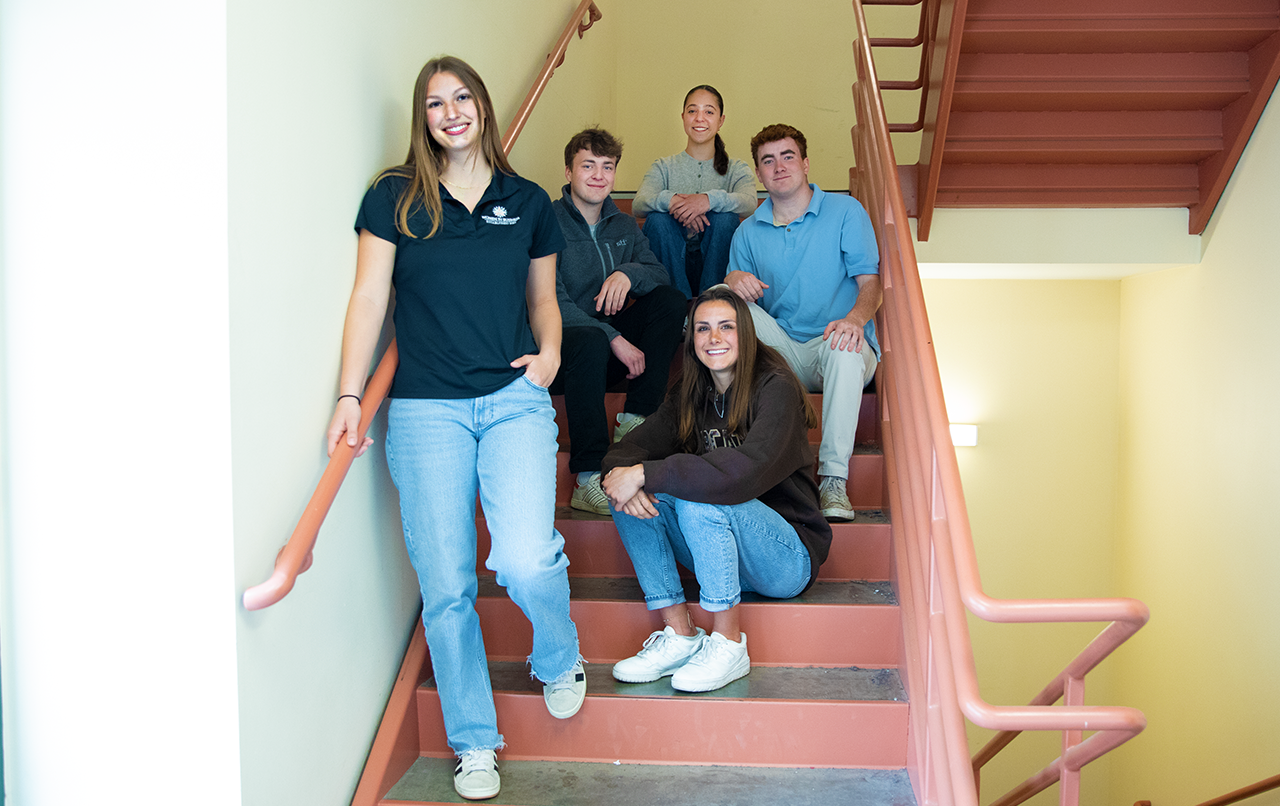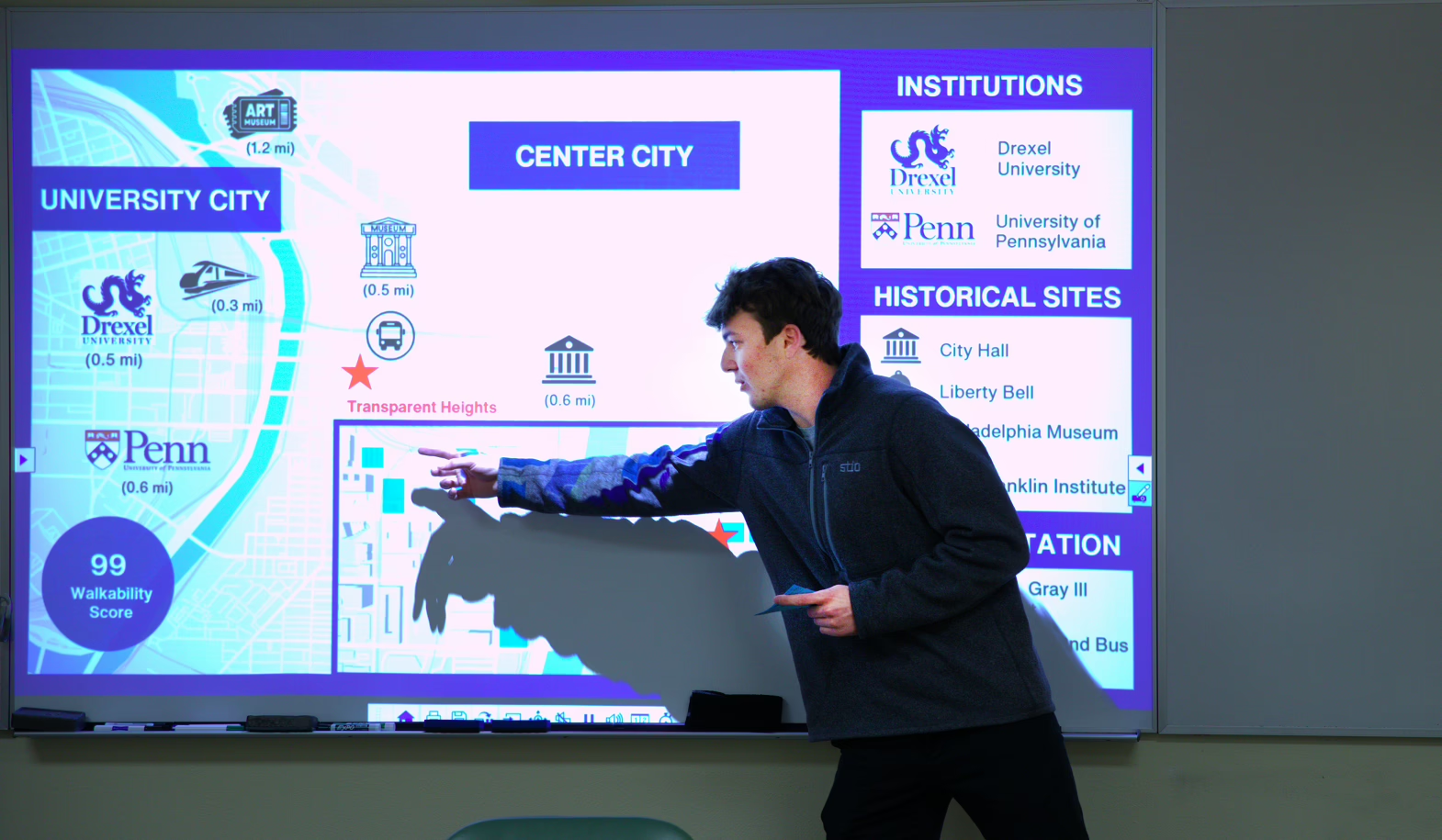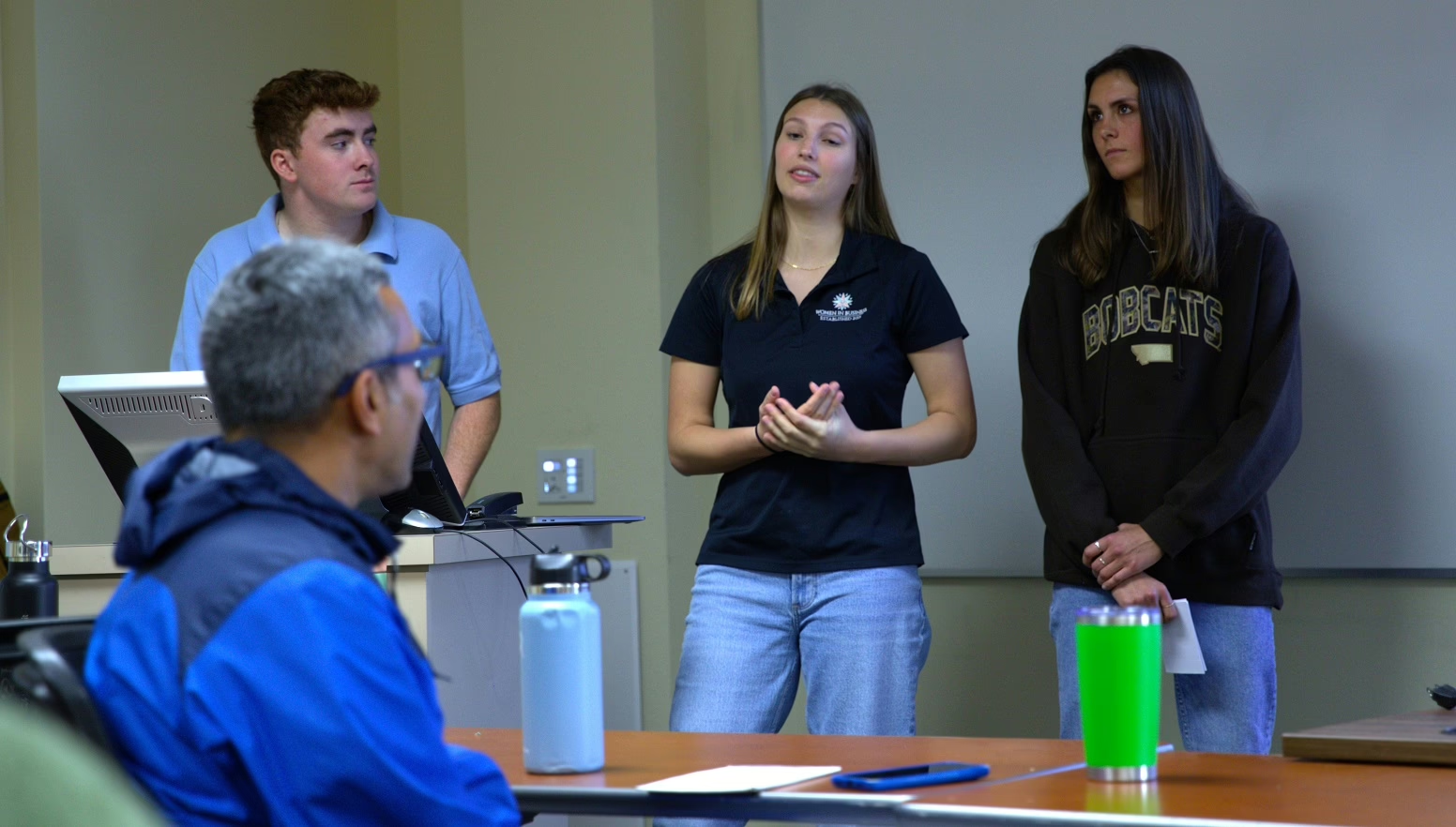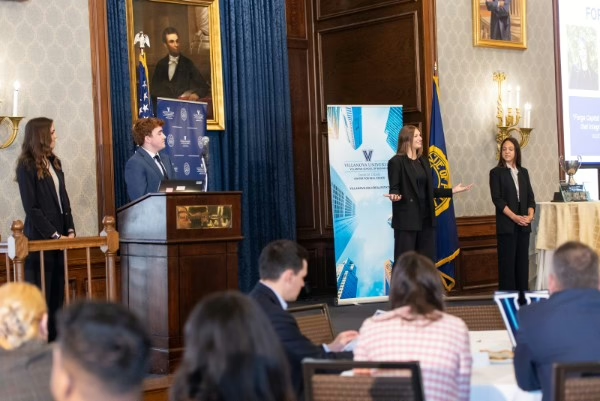Cal Poly Team’s Multi-Use Development Proposal for Downtown Philly Wins Second Place in National Real Estate Contest

Members of the Forge Capital Group include, left to right, Hayley Morgan, Connor Casey, Tyler Moss (Top), Gabby Klein (Bottom), Kenny Kay. (Photo/Pat Pemberton)
Given one week to envision new development for a tragic site in downtown Philadelphia, a team of Cal Poly students created an elaborate plan for new commercial and real estate properties, which was recently awarded second place in the Mulroy Real Estate Challenge.
“Our team, Forge Capital Group, developed ‘Transparent Heights,’ a $133 million mixed-use project that blends multifamily, office and retail uses,” said Kenny Kay, a finance student. “We aimed to honor the cultural legacy of the site while maximizing long-term value through creative placemaking and thoughtful design.”
The annual competition, which Cal Poly won in 2020 and 2021, featured 35 teams from 26 universities. After advancing, the Cal Poly team traveled to Philadelphia, where the event was hosted by the Villanova School of Business. A team from Virginia Tech won the competition.
“This case was an excellent learning experience because it combined technical rigor with the challenge of storytelling,” said Pratish Patel, an advisor to the team and associate professor of finance.
The competitors were tasked to envision, research, design and pitch development for 2120 Market Street in a historic section of Philadelphia. While the neighborhood includes landmarks, such as the Philadelphia Museum of Art, the Liberty Bell and the city hall building, the specific lot experienced tragedy in 2013, when a building being demolished collapsed on a Salvation Army store. According to the Philadelphia Inquirer, the accident killed seven people.

Connor Casey practices his presentation to Orfalea College of Business staff prior to the finals in Philadelphia. (Photo/Pat Pemberton)
Today, a memorial park commemorates the tragedy, and for several years plans to develop it have been discussed by Philly developers Brandywine Realty Trust.
The real estate competition challenges students to present its own unique proposal.
“We had to integrate financial modeling, zoning analysis, architectural design and market research, all under a tight deadline,” said Kay, who created building renderings and a video using Google SketchUp and AI.
In addition to Kay, the team included Connor Casey, Gabrielle Klein, Hayley Morgan and Tyler Moss.
Working over eight hours a day, the students spent a week creating the project, after which no changes were allowed.
“Our final project was a mixed-use trophy-class development, aligning with Brandywine’s portfolio, encompassing 22,700 square feet of ground-floor retail, 63,000 square feet of Brandywine Experience office space and 175 residential units,” said Morgan, a real estate finance student.

Members of the Forge Capital team rehearsed their presentation several times on campus before traveling to Philadelphia. Pictured here is Kenny Kay, Hayley Morgan and Gabrielle Klein, with Pratish Patel in the audience. (Photo/Pat Pemberton)
Once the development plan was created, the team had to practice its pitch, with Orfalea College of Business faculty, staff and alumni offering feedback.
“We presented at least twice a week to a new set of professionals each week leading up to the case, taking their advice and questions as we progressed,” Morgan said. “While the case itself only lasted one week, our group worked for over a month to truly perfect our project.”
For the pitch, Pratish said, the biggest challenge was condensing all the information.
“For instance, they had to explain that the project was financed with a construction loan, then refinanced with a permanent loan, and ultimately sold after 15 years – all while including vacancy rates, loan terms and sales details,” he said. “It’s a tough task but also a realistic reflection of what presenting a project in the real world is like.”

The Cal Poly team, offering their presentation to judges. (Courtesy photo)
After the team advanced to the top five, it offered its final presentation before a large panel of expert judges at the Civil War-era Union League of Philadelphia. One of the judges told Patel the Cal Poly presentation was the best he’d ever seen.
The intense project exemplified the college’s experiential learning approach.
“Throughout the project, I learned technical skills, such as building a pro-forma, creating professional pitch decks, conducting proper due diligence research and understanding zooming ordinances,” Morgan said. “I also developed skills essential to success in the workplace, such as how to a strong team member, professionally communicate information and, most importantly, public speaking.”
Your support for Cal Poly’s Finance Area helps give our students an edge in a competitive workforce.
